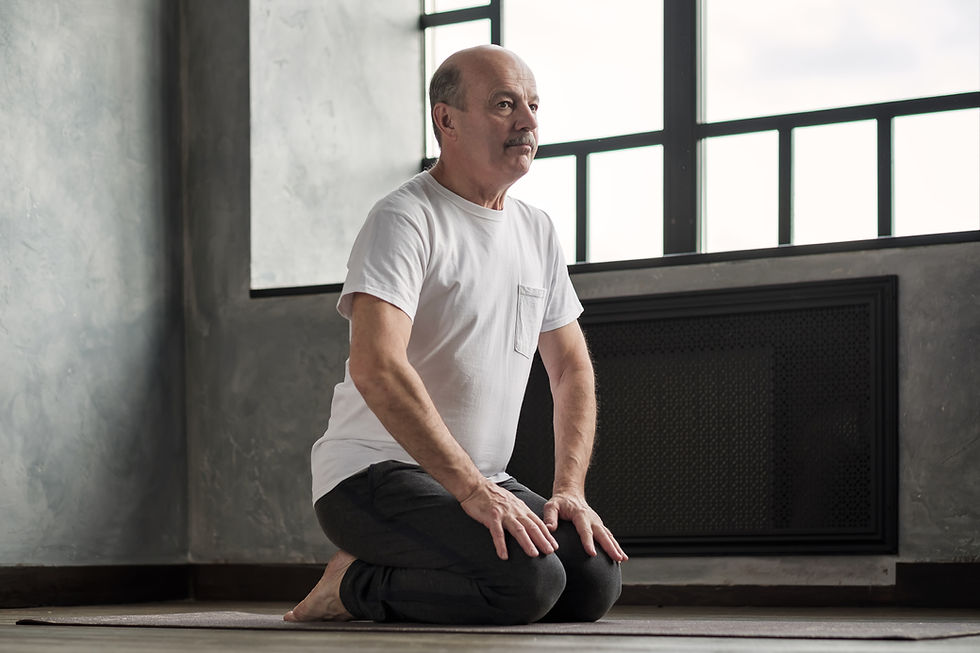How Neurological Physiotherapy Can Help with Spinal Cord Injury (SCI)
- taher DHULIAWALA
- Jun 18, 2025
- 2 min read
Spinal cord injuries (SCI) can be life-changing, but with the right care and rehabilitation, individuals can achieve significant improvements in function and quality of life. Neurological physiotherapy plays a vital role in the recovery process, offering targeted, evidence-based treatments to address the unique challenges of SCI.
What Is Neurological Physiotherapy?
Neurological physiotherapy focuses on treating movement disorders caused by injuries or conditions affecting the nervous system, such as a spinal cord injury. The goal is to improve mobility, strength, and independence by retraining the nervous system and muscles.

How Can Neurological Physiotherapy Help with SCI?
Restoring Movement and Strength
After an SCI, muscles below the injury may become weak or paralysed. Neurological physiotherapists use specific exercises to target and strengthen these muscles. Techniques like functional electrical stimulation (FES) can be used to stimulate nerve activity, encouraging movement and muscle recovery.
Improving Mobility and Balance
For individuals with partial recovery, walking may still be possible with the right training. Gait retraining, balance exercises, and the use of assistive devices like orthotics or walkers can help regain independence in movement. Advanced rehabilitation equipment, such as body-weight-supported treadmills, can be used to safely practice walking.
Managing Pain and Spasticity
Pain and muscle stiffness (spasticity) are common after SCI. Neurological physiotherapists use stretching exercises, posture correction, and techniques such as manual therapy and hydrotherapy to help manage pain and relax stiff muscles. This not only reduces discomfort but also improves overall mobility.
Enhancing Functional Independence
Everyday tasks like transferring from a bed to a wheelchair or standing up from a chair can become challenging after an SCI. Physiotherapy sessions focus on functional training to help clients relearn these movements, making daily activities more manageable and reducing the need for assistance.
Preventing Secondary Complications
SCI can lead to complications such as pressure ulcers, respiratory issues, and joint problems. Neurological physiotherapists help by educating clients on proper positioning, joint care, and respiratory exercises, ensuring these risks are minimised during recovery.
Long-Term Neurological Rehabilitation and Support
Recovery from SCI is a long-term process, and the journey doesn’t end after initial rehabilitation. Neurological physiotherapists work closely with patients over time, adjusting treatment plans as progress is made. They also offer guidance on using adaptive equipment and strategies to maintain improvements in function and quality of life.
The Importance of Early Intervention
Starting physiotherapy as soon as possible after an SCI is critical for maximising recovery. Early intervention can prevent muscle atrophy, improve circulation, and reduce the risk of secondary complications. The sooner rehabilitation begins, the better the long-term outcomes.
Partnering for Progress
At our NeuroAbility, we take a personalised approach to SCI rehabilitation. By working together, we can help individuals with spinal cord injuries achieve their full potential, enhancing mobility, independence, and quality of life.
If you or a loved one has experienced an SCI and are looking for support, contact us today to discuss how we can help you on the road to recovery.
Other helpful resources for SCI clients: The Backup Trust Spinal Injuries Association


Comments